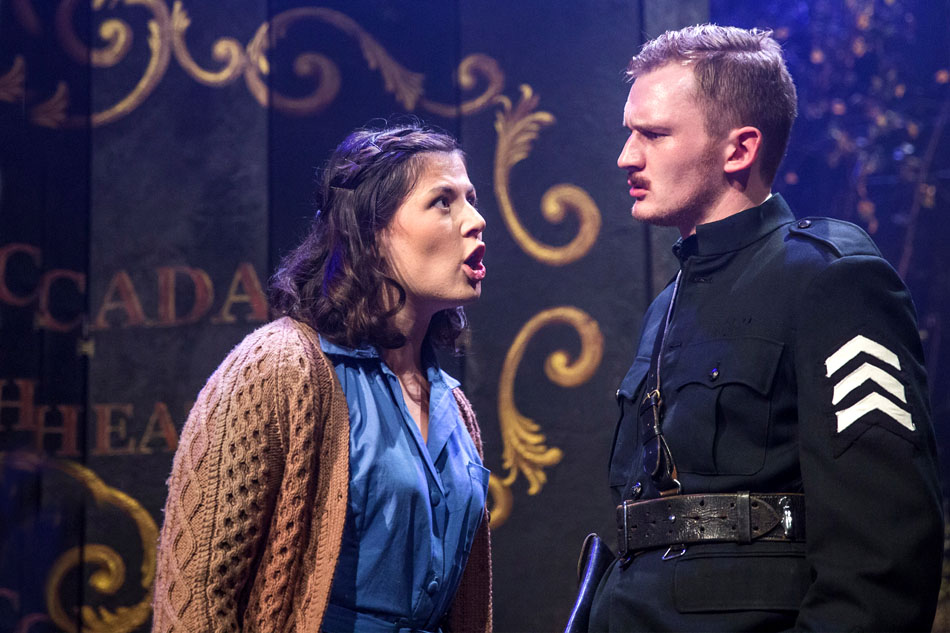 Thomas Kilroy’s play is set in a small village in the neutral Republic of Ireland during the Second World War. With the rest of Europe going up in flames the fledgling Republic’s stance was a kind of denial of the realities of geopolitics at the time as attempts were made to carry on to carry on as if times were normal – which of course they weren’t. Kilroy nods towards this with a strange coda at the end of act one where a group of uniformed soldiers make a Nazi salute, making the point, presumably, that choices had to be made.
Thomas Kilroy’s play is set in a small village in the neutral Republic of Ireland during the Second World War. With the rest of Europe going up in flames the fledgling Republic’s stance was a kind of denial of the realities of geopolitics at the time as attempts were made to carry on to carry on as if times were normal – which of course they weren’t. Kilroy nods towards this with a strange coda at the end of act one where a group of uniformed soldiers make a Nazi salute, making the point, presumably, that choices had to be made.
Into this odd, almost make-believe world comes the touring theatrical company of Madam Macadam, which is made up of a group of slightly eccentric English actors, headed up by Madam Macadam and leading man, Lyle Jones. By definition almost, the troupe has even less of a grasp on reality than the locals and with one member, Rabe, having lost the plot completely.
The undercurrent of suspicion of foreigners (and the English) is given a stir by the disappearance of a local toddler. Added to this a couple of the local schoolgirls become infatuated with the dashing, but unhinged Rabe, who manages to have sex with the apparently more innocent, but in fact more mature, Jo. A further plot complication revolved around the efforts of a local chancer, Chamberlain, to pull off some kind of scam which I didn’t fully grasp involving a racing dog, which somehow required the participation of an Englishman and the acquiescence of the local police sergeant.
The cast go about the difficult task of pulling these threads together with a goodly amount of attack. The Irish accents were all believable with only the occasional wobble. Will Kelly as the ham actor, Lyle, relished the fun the part offered and was counterbalanced by the stalwart good sense of Jessica Temple’s Macadam which put one in mind of a hearty, countryside dog breeder. Daniel Bogod had the hardest task of finding something sympathetic in the disruptive and psychologically damaged Rabe. Whilst I didn’t feel he totally inhabited the character, it was nonetheless a compelling and believable portrayal. Jenny Haynes’ wide eyed adolescent, Marie Therese was convincing in her mood swings whilst Poppy Pedder’s, Jo, was perhaps the most satisfying performance in that her character had a clear emotional journey through the play.
I understand that this was the first public performance for the cast in their final year and it was pleasing to see that each and every one showed great promise. Whilst they all showed a good appreciation of their characters there was less of an emphasis on relationships, but perhaps this was more of a directorial decision, which will change as their final year progresses.
Photo by Craig Fuller

